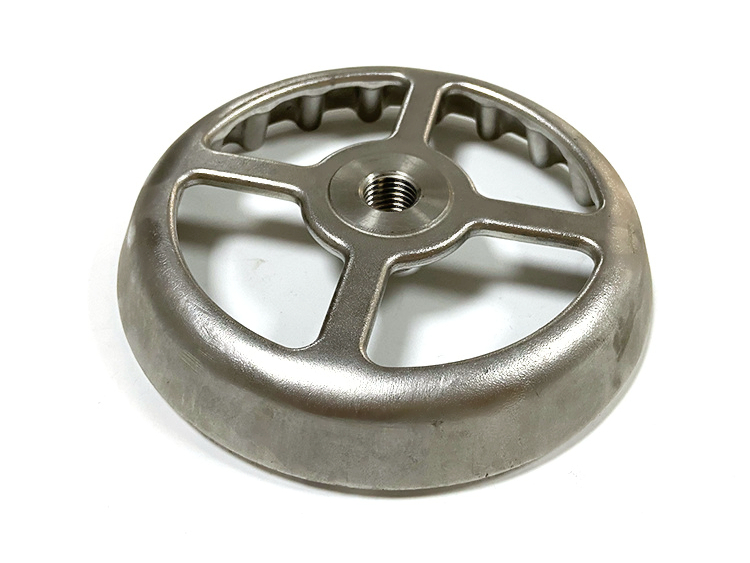Introduction
Gravity casting, renowned for producing robust and reliable components, is critical in industries requiring high structural integrity. Ensuring structural strength is essential for parts exposed to significant stresses, where failure could result in serious consequences. This article explores how custom gravity casting processes significantly enhance structural strength and integrity, making them indispensable for manufacturing high-performance and durable parts.
Understanding Structural Integrity in Gravity Casting
Structural integrity refers to a component's ability to endure loads without failure or deformation. Achieving high structural integrity depends on factors such as material selection, manufacturing processes, and component design. Gravity casting supports structural integrity by promoting uniform material distribution and controlled cooling, resulting in improved mechanical properties and minimal casting defects, superior to some alternative methods like sand casting.
Advantages of Gravity Casting for Structural Integrity
Uniform Density and Minimized Porosity
Gravity casting leverages gravitational forces to ensure even mold filling, resulting in uniform density throughout the component. This consistency significantly minimizes porosity, enhancing overall strength and reliability compared to processes like die casting.
Enhanced Mechanical Properties and Durability
Components produced via gravity casting demonstrate superior mechanical properties, including high tensile strength, increased hardness, and exceptional fatigue resistance. These properties ensure components perform reliably under severe operational conditions, closely matching or exceeding results obtained through precision CNC machining.
Reliable Performance Under Stress and Load
Gravity-cast components exhibit dependable performance even under significant stress and load conditions. Such reliability is especially valuable in critical automotive, aerospace, and heavy industrial applications.
Material Selection for Optimal Strength
Selecting appropriate materials directly impacts the structural integrity of gravity-cast components. Commonly used materials include:
Aluminum Alloys: Lightweight, corrosion-resistant materials ideal for automotive and aerospace components.
Steel: Known for strength and toughness, excellent for heavy-duty industrial applications requiring durability.
Iron: Cost-effective with exceptional durability, ideal for heavy-duty industrial machinery and components.
Real-World Applications Demonstrating Enhanced Integrity
Automotive Industry
Gravity casting is commonly utilized to produce automotive components such as engine manifolds, suspension parts, and customized transmission housings. These parts require durability and precision to withstand demanding operating conditions, making gravity casting an ideal choice in automotive manufacturing.
Aerospace Industry
In aerospace, where component integrity is critical, gravity casting manufactures structural frames, brackets, and precision housings that must endure intense forces, vibrations, and environmental stresses during flight. Gravity casting’s reliability ensures these components meet strict aerospace safety standards.
Industrial Machinery
Heavy-duty industrial machinery components, such as pump housings, machine bases, and equipment frames, benefit from gravity casting’s robust mechanical properties. The precision and structural integrity provided by gravity casting significantly enhances reliability and operational performance in demanding industrial environments.
Marine and Energy Applications
Gravity casting produces reliable and corrosion-resistant components essential for marine environments and energy applications. Components like valve housings, marine equipment, and structural supports are effectively manufactured using corrosion-resistant alloys, ensuring long-term durability and operational excellence.
Overcoming Challenges to Maximize Structural Integrity
Addressing Common Casting Issues
Common casting defects such as porosity, shrinkage, and cracking can compromise structural integrity. Employing precise mold design, optimized cooling rates, and effective gating systems helps minimize these issues, significantly improving casting quality and reliability.
Ensuring Mold Accuracy and Consistency
Achieving accurate mold dimensions and consistent quality are critical to maintaining structural integrity. Advanced CAD technology and precise mold-making practices ensure components meet strict engineering specifications consistently.
Optimal Material Selection and Preparation
Proper alloy selection and meticulous material preparation are essential in achieving high-quality gravity-cast components. Ensuring the correct melting practices and utilizing high-quality raw materials like aluminum and steel alloys significantly enhance component strength and durability.
Future Innovations in Gravity Casting for Strength
Advanced Simulation and Analysis Tools
Future developments in casting simulation and analysis software promise significant improvements in predicting outcomes, reducing defects, and further enhancing structural integrity. Advanced software tools allow manufacturers to optimize component designs before production, ensuring robust and reliable performance.
High-Performance Lightweight Materials
Research and innovation continue to focus on high-performance, lightweight alloys with improved strength-to-weight ratios. These advanced alloys, including titanium-based superalloys, will expand gravity casting capabilities into industries requiring extreme strength and lightweight components.
Sustainable Casting Solutions
Growing environmental awareness will drive innovation in sustainable casting practices. Advances in eco-friendly materials and low-impact manufacturing processes will align gravity casting’s inherent strength benefits with environmental responsibility.
Conclusion
Custom gravity casting is a robust method for enhancing structural integrity, producing components capable of reliably performing in demanding environments. Its inherent ability to deliver consistent density, superior mechanical properties, and repeatable quality positions gravity casting as essential for high-performance applications. Businesses prioritizing durability, reliability, and cost-effectiveness should leverage the substantial advantages of custom gravity casting.
FAQs:
What is structural integrity, and why is it critical in casting?
How does gravity casting enhance the strength of manufactured components?
Which materials are best suited for gravity casting to ensure high structural integrity?
In which industries is enhanced structural integrity through gravity casting most critical?
What future innovations are expected to further improve gravity casting processes?

评论
发表评论